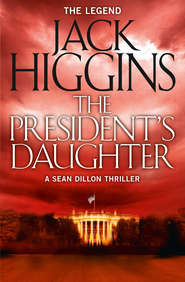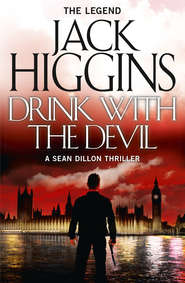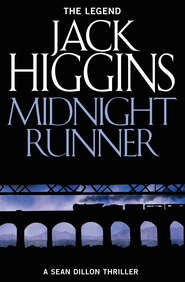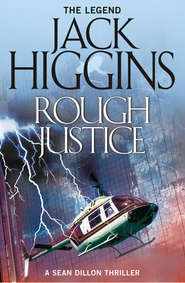По всем вопросам обращайтесь на: info@litportal.ru
(©) 2003-2024.
✖
Confessional
Автор
Год написания книги
2018
Настройки чтения
Размер шрифта
Высота строк
Поля
‘What do you do?’
‘I’m Professor of Structural Engineering at the University of Leningrad. I’ve a particular interest in aircraft design. The Soviet Airforce has five MIG 23s at Fasari, ostensibly in a training role, so it’s the training version of the plane they are using.’
‘With modifications?’ Villiers suggested.
‘Exactly, so that it can be used in a ground attack role in mountainous country. The changes were made in Russia, but there have been problems which I was brought in to solve.’
‘So, you’ve finally had enough? What were you hoping to do, go to Israel?’
‘Not particularly. I’m not a convinced Zionist for one thing. No, England would be a much more attractive proposition. I was over there with a trade delegation in nineteen thirty-nine, just before the war started. The best two months of my life.’
‘I see.’
‘I was hoping to get out in nineteen fifty-nine. Corresponded secretly with relatives in Israel who were going to help, then I was betrayed by someone I had thought a true friend. An old story, I was sentenced to five years.’
‘In the Gulag.’
‘No, somewhere much more interesting. Would you believe, a little Ulster town called Drumore?’
Villiers turned, surprise on his face. ‘I don’t understand?’
‘A little Ulster town called Drumore in the middle of the Ukraine.’ The old man smiled at the look of astonish ment on Villiers’ face. ‘I think I’d better explain.’
When he was finished, Villiers sat there thinking about it. Subversion techniques and counter-terrorism had been very much his business for several years now, particularly in Ireland, so Levin’s story was fascinating to say the least. ‘I knew about Gaczyna, where the KGB train operatives to work in English and so on, but this other stuff is new to me.’
‘And probably to your intelligence people, I think!’
‘In Rome in the old days,’ Villiers said, ‘slaves and prisoners of war were trained as gladiators, to fight in the arena.’
‘To the death,’ Levin said.
‘With a chance to survive if you were better than the other man. Just like those dissidents at Drumore playing policemen.’
‘They didn’t stand much chance against Kelly,’ Levin said.
‘No, he sounds as if he was a very special item.’
The old man closed his eyes. His breathing was hoarse and troubled but he was obviously asleep within a few moments. Villiers leaned back in the corner, wretchedly uncomfortable. He kept thinking about Levin’s strange story. He’d known a lot of Ulster market towns himself, Crossmaglen for example. A bad place to be. So dangerous that troops had to be taken in and out by helicopter. But Drumore in the Ukraine – that was something else. After a while, his chin dropped on to his chest and he too drifted into sleep.
He came awake to find himself being shaken vigorously by one of the Rashid tribesmen. Another was waking Levin. The man pulled Villiers to his feet and sent him stumbling through the door. It was afternoon now, he knew that from the position of the sun. Much more interesting was the half-track armoured personnel carrier. A converted BTR. What the Russians called a Sandcruiser, painted in desert camouflage. Half a dozen soldiers stood beside it wearing khaki drill uniforms, each man holding an AK assault rifle at the ready. Two more stood inside the Sandcruiser, manning a 12.7mm heavy machine gun with which they covered the dozen or so Rashid who stood watching, rifles cradled in their arms.
Salim turned as Levin was brought out behind Villiers. ‘So, Villiers Sahib, we must part. What a pity. I’ve enjoyed our conversations.’
The Russian officer who approached, a sergeant at his shoulder, wore drill uniform like his men and a peaked cap and desert goggles that gave him an uncanny resemblance to one of Rommel’s Afrika Corps officers. He stood looking at them for a while, then pushed up the goggles. He was younger than Villiers would have thought, with a smooth unlined face and very blue eyes. ‘Professor Levin,’ he said in Russian, ‘I’d like to think you lost your way while out walking, but I’m afraid our friends of the KGB will take a rather different point of view.’
‘They usually do,’ Levin told him.
The officer turned to Villiers and said calmly, ‘Yuri Kirov, Captain, 21st Specialist Parachute Brigade.’ His English was excellent. ‘And you are Major Anthony Villiers, Grenadier Guards, but rather more importantly, of the 22nd Special Air Service Regiment.’
‘You’re very well informed,’ Villiers said. ‘And allow me to compliment you on your English.’
‘Thank you,’ Kirov said. ‘We’re using exactly the same language laboratory techniques as those pioneered by the SAS at Bradbury Line Barracks in Hereford. You, also, the KGB will take a special interest in.’
‘I’m sure they will,’ Villiers said amiably.
‘So.’ Kirov turned to Salim. ‘To business.’ His Arabic was not as good as his English, but serviceable enough.
He snapped a finger and the sergeant stepped forward and handed the Arab a canvas pouch. Salim opened it, took out a handful of coins and gold glinted in the sun. He smiled and handed the pouch to Hamid who stood behind him.
‘And now,’ Kirov said, ‘if you will be good enough to unpadlock these two, we’ll get moving.’
‘Ah, but Kirov Sahib is forgetting,’ Salim smiled. ‘I was also promised a machine gun and twenty thousand rounds of ammunition.’
‘Yes, well my superiors feel that would be putting far too much temptation in the way of the Rashid,’ Kirov said.
Salim stopped smiling. ‘This was a firm promise.’
Most of his men, sensing trouble, raised their rifles. Kirov snapped fingers and thumb on his right hand, there was a sudden burst of fire from the heavy machine gun, raking the wall above Salim’s head. As the echoes died away, Kirov said patiently, ‘Take the gold, I would earnestly advise it.’
Salim smiled and flung his arms wide. ‘But of course. Friendship is everything. Certainly not worth losing for the sake of a trifling misunderstanding.’
He produced a key from a pouch at his belt and unlocked the padlock, first on the wooden halter which held Levin. Then he moved to Villiers. ‘Sometimes Allah looks down through the clouds and punishes the deceiver,’ he murmured.
‘Is that in the Koran?’ Villiers asked, as Hamid removed the halter and he stretched his aching arms.
Salim shrugged and there was something in his eyes. ‘If not, then it should be.’
Two soldiers doubled forward on the sergeant’s command and ranged themselves on either side of Levin and Villiers. They walked to the Sandcruiser. Villiers and Levin climbed inside. The soldiers followed, Kirov bringing up the rear. Villiers and Levin sat down, flanked by armed guards, and Kirov turned and saluted as the engine rumbled into life.
‘Nice to do business with you,’ he called to Salim.
‘And you, Kirov Sahib!’
The Sandcruiser moved away in a cloud of dust. As they went up over the edge of the first sand dune, Villiers looked back and saw that the old Rashid was still standing there, watching them go, only now his men had moved in behind him. There was a curious stillness about them, a kind of threat, and then the Sandcruiser went over the ridge and Bir al Gafani disappeared from view.
The concrete cell on the end of the administrative block at Fasari was a distinct improvement on their previous quarters, with whitewashed walls and chemical toilet and two narrow iron cots, each supplied with a mattress and blankets. It was one of half a dozen such cells, Villiers had noticed that on the way in, each with a heavy steel door complete with spyhole, and there seemed to be three armed guards constantly on duty.
Through the bars of the window, Villiers looked out at the airstrip. It was not as large as he had expected: three prefabricated hangars with a single tarmacadam runway. The five MIG 23s stood wingtip to wingtip in a line in front of the hangars, looking, in the evening light just before dark, like strange primeval creatures, still, brooding. There were two Mi-8 troop-carrying helicopters on the far side of them and trucks and motor vehicles of various kinds.
‘Security seems virtually non-existent,’ he murmured.
Beside him, Levin nodded. ‘Little need for it. They are, after all, in friendly territory entirely surrounded by open desert. Even your SAS people would have difficulty with such a target, I suppose.’
Behind them, the bolts rattled in the door. It opened and a young corporal stepped in, followed by an Arab carrying a pail and two enamel bowls. ‘Coffee,’ the corporal said.
‘When do we eat?’ Villiers demanded.
‘Nine o’clock.’











